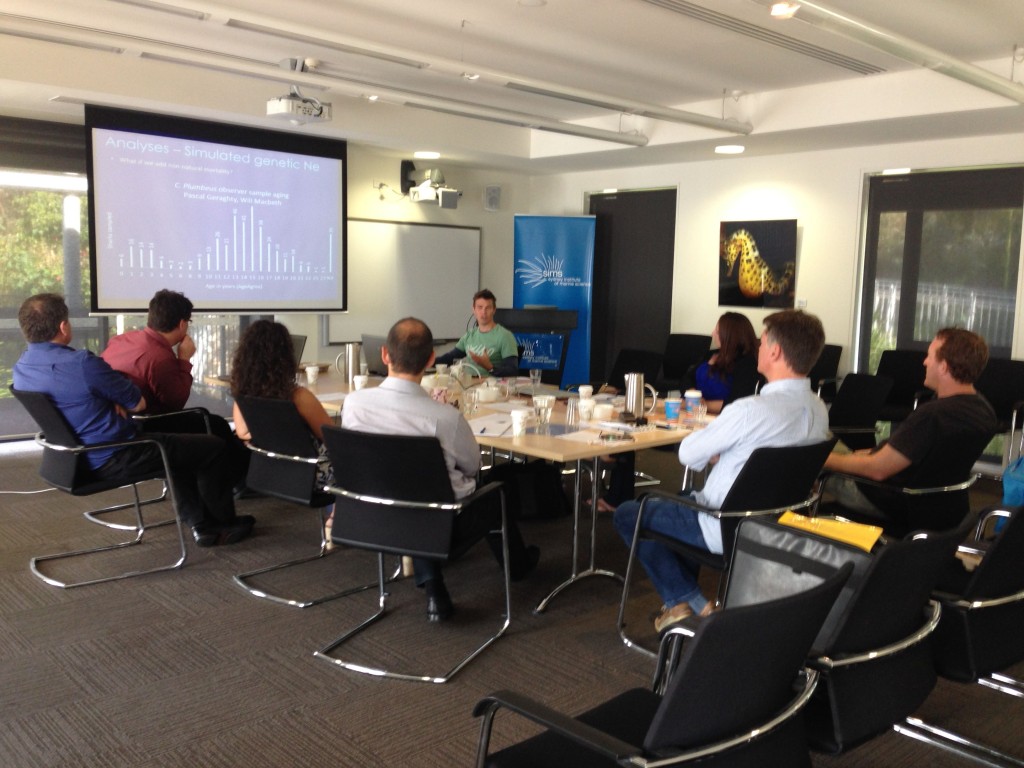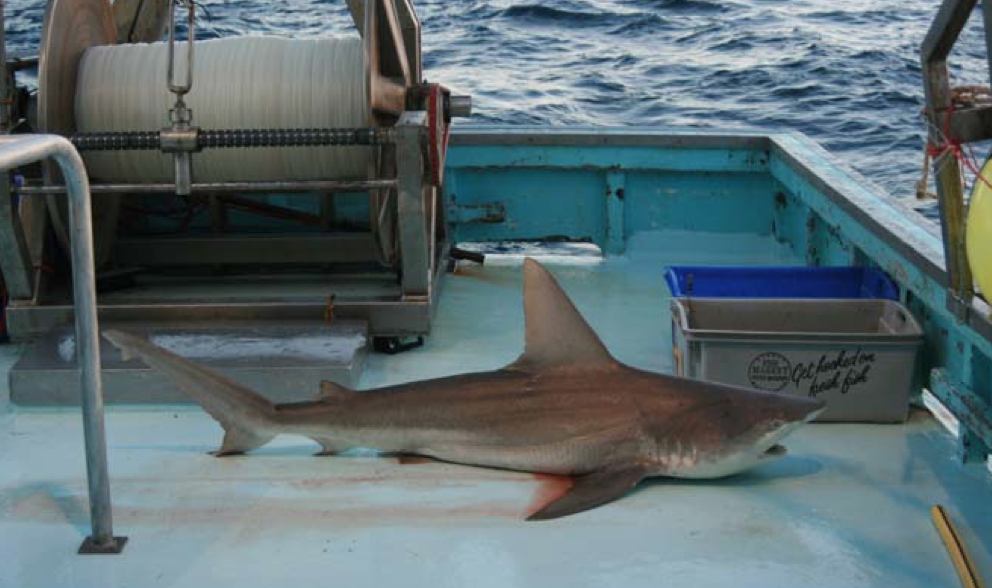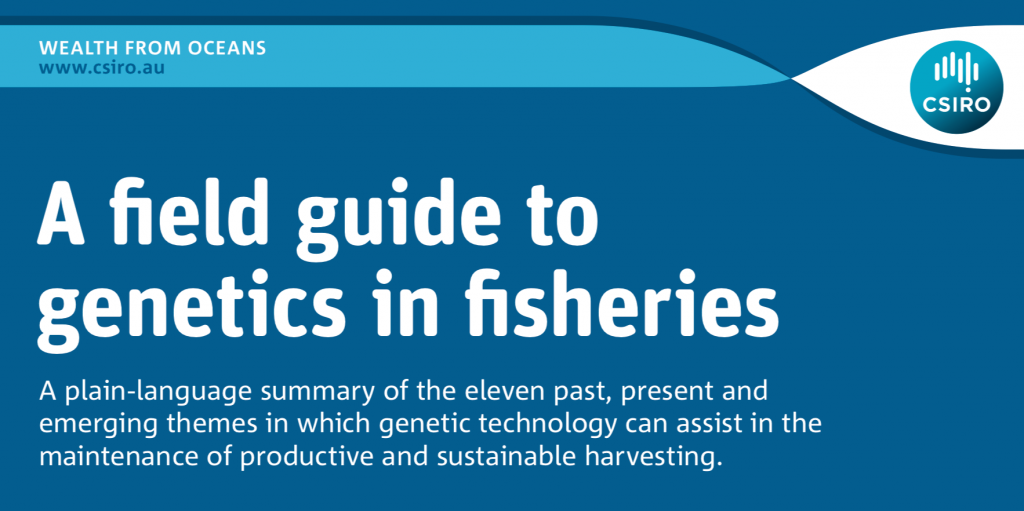“If we’d estimated white shark abundance in the past using digital-DNA, we’d know whether shark attacks are increasing because there are more sharks around or for other reasons” Read more about the digital-DNA method and its application to estimating abundance of sharks in a recent press release from UQ.
Tag Archives: Shark Futures
At the MFL, we are keen to develop genetic methods for assessing abundance of fisheries populations. One method being explored is genetic effective population size. We are focusing on shark and ray populations, because they are generally less abundant than species like finfish and shellfish and the math is easier. A new study that was published today […]
Dean and Jenny presented their work to the final workshop for the FRDC-funded project “Shark Futures: sustainable management of the NSW whaler shark fishery“. Their role within the project was to genetically resolve the effective population size of the dusky and sandbar sharks targeted in the Ocean Trap and Line Fishery. Vic Peddemors, Paul Butcher and […]
In 2015 the Molecular Fisheries Laboratory will use DNA from historical remains to study how shark species respond to changes in the environment. The changes include gradual changes (associated with long-term changes in sea-levels, current patterns and thermal regimes) and abrupt changes (associated with anthropomorphic events such as exploitation, habitat alteration). Tiger sharks (Galeocerdo cuvier) are important to fishers and well […]
On Tuesday, 7th October 2014, the team met to discuss new scientific information coming out of the project. The workshop was held at the Sydney Institute for Marine Science. Here Dean Blower, PhD student at the University of Queensland, explains how the removal of sharks of breeding age is likely to effect estimates of effective […]
Dean Blower and Jenny Ovenden are at the Sydney Institute of Marine Science today. Along with collaborators Vic Peddemors and Paul Butcher from NSW Fisheries and others, Dean and Jenny have been gathering new scientific data to assist the sustainable management of the whaler shark fishery on the eastern Australian coastline. Click here to see more […]
Pascal Geraghty has completed his PhD thesis at Macquarie University, Sydney. Pascal studied three shark species (dusky shark – Carcharhinus obscurus, , spinner shark – C. brevipinna, and sandbar shark – C. plumbeus). The thesis addresses important questions about the resilience of populations to fishing-induced mortality and the sustainability of the local fishery in inshore waters adjacent […]
MFL members feel strongly that there is no scientific evidence in favour of the Western Australian Government’s proposed use of drum lines (baited hooks suspended from large floats called drums) to reduce the shark hazard to ocean users. Jennifer Ovenden and other MFL members have added their names to the joint submission prepared by Jessica Meeuwig and colleagues. Read the submission […]
PhD student Pascal Geraghty led a team of scientists to uncover genetic aspects of shark populations on the eastern coast of Australia. The findings will be used in the management and conservation of these commercially harvested species. Here is the reference for the published paper :- Geraghty PT, Williamson JE, Macbeth WG, et al. (2014) […]
This pamphlet is a jargon-free zone for everyone interested the sustainable exploitation and conservation of marine and freshwater fishes. A download link to the pdf document can be found here.
- 1
- 2



